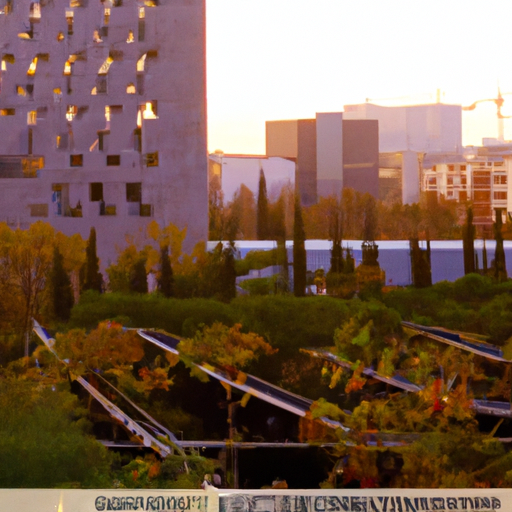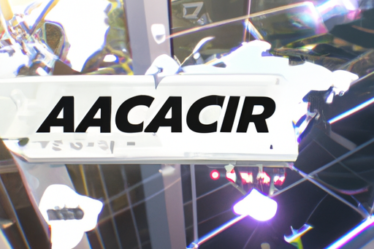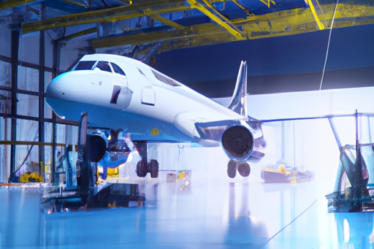
Advancing Sustainable Aviation: Key Discussions at the IATA World Sustainability Symposium
The International Air Transport Association (IATA) is set to host its annual World Sustainability Symposium in Spain this October. The event, which brings together industry leaders, experts, and stakeholders, aims to advance sustainable aviation and address key challenges facing the industry.
One of the main topics of discussion at the symposium will be the reduction of carbon emissions. With the aviation industry being a significant contributor to greenhouse gas emissions, finding ways to minimize its environmental impact is crucial. Participants will explore innovative technologies and strategies to reduce carbon emissions, such as the use of sustainable aviation fuels and the implementation of more efficient aircraft designs.
Another important aspect of sustainable aviation that will be discussed is the management of waste and the promotion of recycling. Airlines generate a significant amount of waste, including food packaging, plastic bottles, and other single-use items. Finding ways to reduce this waste and promote recycling will be a key focus of the symposium. Participants will share best practices and discuss initiatives that have been successful in reducing waste and promoting a circular economy within the aviation industry.
The symposium will also address the importance of biodiversity conservation and the protection of natural habitats. Aviation infrastructure, such as airports and runways, can have a significant impact on local ecosystems. Participants will discuss ways to minimize this impact and explore opportunities for biodiversity conservation. They will also examine the role of airports in supporting local communities and promoting sustainable tourism.
In addition to environmental sustainability, the symposium will also delve into social and economic aspects of sustainable aviation. Participants will discuss the importance of creating a diverse and inclusive workforce within the industry. They will explore strategies to promote gender equality and empower women in aviation, as well as initiatives to support the development of local communities and enhance their economic well-being.
The symposium will provide a platform for industry leaders to share their experiences and success stories in advancing sustainable aviation. Participants will have the opportunity to learn from each other and collaborate on innovative solutions to common challenges. The event will also feature interactive workshops and panel discussions, allowing for in-depth conversations and the exchange of ideas.
By bringing together stakeholders from across the aviation industry, the IATA World Sustainability Symposium aims to foster collaboration and drive meaningful change. The event will serve as a catalyst for the development and implementation of sustainable practices within the industry. It will provide a roadmap for the future of aviation, one that is environmentally responsible, socially inclusive, and economically sustainable.
In conclusion, the IATA World Sustainability Symposium in Spain this October will be a crucial event for advancing sustainable aviation. With discussions on carbon emissions reduction, waste management, biodiversity conservation, and social and economic sustainability, the symposium will address key challenges facing the industry. By fostering collaboration and sharing best practices, the event will pave the way for a more sustainable future for aviation.
Exploring Innovative Solutions for a Greener Future: Highlights from the IATA World Sustainability Symposium

The International Air Transport Association (IATA) is set to host its annual World Sustainability Symposium in Spain this October. The event aims to bring together industry leaders, experts, and stakeholders to explore innovative solutions for a greener future in the aviation sector. With sustainability becoming an increasingly important issue, the symposium promises to be a platform for sharing ideas, best practices, and initiatives that can help reduce the environmental impact of air travel.
One of the key highlights of the symposium will be the discussion on sustainable aviation fuels (SAF). As the aviation industry seeks to reduce its carbon footprint, SAF has emerged as a promising alternative to traditional jet fuels. Made from renewable sources such as biomass, SAF has the potential to significantly reduce greenhouse gas emissions. During the symposium, experts will share their insights on the latest advancements in SAF production, distribution, and adoption, as well as the challenges that need to be overcome for its widespread use.
Another important topic that will be addressed at the symposium is the role of technology in achieving sustainability goals. From electric aircraft to advanced air traffic management systems, technology has the power to revolutionize the aviation industry and make it more environmentally friendly. Participants will have the opportunity to learn about the latest technological innovations and how they can be integrated into existing infrastructure to improve efficiency and reduce emissions.
In addition to SAF and technology, the symposium will also focus on other sustainability initiatives. One such initiative is carbon offsetting and reduction schemes for international aviation (CORSIA). CORSIA is a global market-based measure that aims to offset the growth in international aviation emissions from 2020 onwards. The symposium will provide a platform for discussions on the implementation and effectiveness of CORSIA, as well as the challenges and opportunities it presents for the industry.
Furthermore, the symposium will feature sessions on sustainable airport operations and infrastructure. Airports play a crucial role in the aviation industry’s sustainability efforts, as they are responsible for a significant portion of its environmental impact. Participants will have the chance to learn about innovative practices and technologies that can help airports reduce their energy consumption, waste generation, and carbon emissions. The symposium will also explore the concept of sustainable airport design and construction, highlighting examples of airports that have been built or renovated with sustainability in mind.
Overall, the IATA World Sustainability Symposium promises to be an exciting and informative event for anyone interested in the future of sustainable aviation. With its focus on innovative solutions and best practices, the symposium will provide a platform for collaboration and knowledge sharing among industry leaders, experts, and stakeholders. By exploring topics such as sustainable aviation fuels, technology, carbon offsetting, and airport sustainability, the symposium aims to inspire and drive positive change in the aviation sector. As the world continues to grapple with the challenges of climate change, events like the IATA World Sustainability Symposium are crucial in shaping a greener future for air travel.
Collaborating for Environmental Responsibility: Insights from the IATA World Sustainability Symposium
The International Air Transport Association (IATA) is set to host its annual World Sustainability Symposium in Spain this October. The event brings together industry leaders, experts, and stakeholders to discuss and collaborate on environmental responsibility in the aviation sector. With sustainability becoming an increasingly important issue, the symposium aims to provide insights and solutions to address the industry’s environmental challenges.
The aviation industry has long been aware of its impact on the environment. As air travel continues to grow, so does the need for sustainable practices. The IATA World Sustainability Symposium serves as a platform for airlines, airports, and other industry players to share their experiences and best practices in reducing their carbon footprint.
One of the key topics that will be discussed at the symposium is the reduction of greenhouse gas emissions. The aviation industry is responsible for a significant amount of carbon dioxide emissions, and finding ways to minimize this impact is crucial. Airlines have been investing in more fuel-efficient aircraft and exploring alternative fuels to reduce their carbon footprint. The symposium will provide a space for industry leaders to discuss the progress made so far and explore new strategies for further emissions reduction.
Another important aspect of sustainability in the aviation industry is waste management. With millions of passengers traveling each year, the amount of waste generated can be staggering. The symposium will delve into innovative waste management solutions, such as recycling programs and reducing single-use plastics. By sharing successful initiatives, industry players can learn from each other and implement effective waste reduction strategies.
Collaboration is a key theme of the symposium. The aviation industry is a complex network of airlines, airports, regulators, and suppliers. To achieve meaningful progress in sustainability, all stakeholders must work together. The symposium provides a unique opportunity for these different players to come together, share their perspectives, and find common ground. By fostering collaboration, the industry can develop holistic and effective solutions to its environmental challenges.
The symposium will also explore the role of technology in sustainability. Advancements in technology have the potential to revolutionize the aviation industry and make it more environmentally friendly. From electric aircraft to sustainable aviation fuels, there are numerous technological innovations that can contribute to reducing the industry’s carbon footprint. The symposium will showcase these advancements and discuss their potential impact on sustainability.
In addition to the discussions and presentations, the symposium will also feature interactive workshops and networking opportunities. These activities will allow participants to engage with each other, exchange ideas, and build partnerships. By fostering collaboration and knowledge sharing, the symposium aims to inspire action and drive change in the aviation industry.
In conclusion, the IATA World Sustainability Symposium is an important event that brings together industry leaders, experts, and stakeholders to collaborate on environmental responsibility in the aviation sector. With a focus on reducing greenhouse gas emissions, waste management, technology, and collaboration, the symposium aims to provide insights and solutions to address the industry’s environmental challenges. By sharing best practices, exploring innovative solutions, and fostering collaboration, the aviation industry can work towards a more sustainable future.


